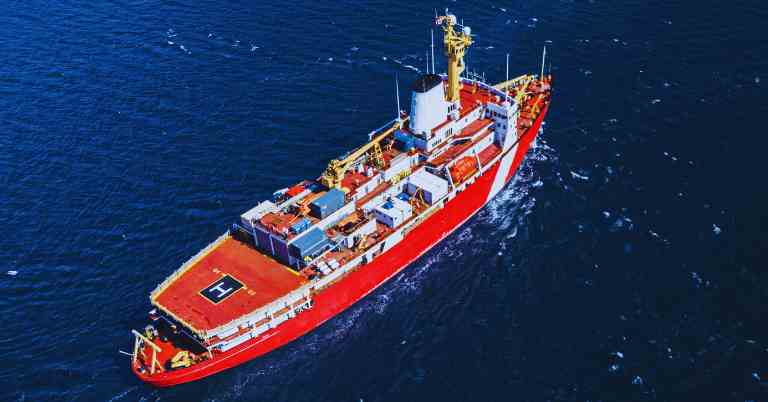The vast expanse of our planet is covered by water, and these waters are traversed by countless vessels transporting goods, people, and vital resources. However, with this maritime activity comes a set of challenges, including piracy, theft, and other security threats. In response to these challenges, the role of maritime armed security guards has become increasingly important in ensuring the safety and security of vessels and their crews. In this article, we delve into the crucial role of maritime armed security guards and how they contribute to keeping the seas safe.
Table of Contents
The Growing Importance of Maritime Security
Maritime trade has been the lifeblood of the global economy for centuries. Today, an estimated 80% of global trade by volume is transported via sea routes. This immense volume of trade makes maritime routes vulnerable to various security threats, especially in regions where the rule of law might be weaker. Piracy, armed robbery, and terrorism are just a few of the threats that can endanger both vessels and their crew members.
In recent years, the frequency and audacity of maritime security incidents have prompted the need for enhanced security measures. This is where the role of maritime armed security guards comes into play. These highly trained professionals provide a vital layer of protection for ships and their occupants, helping to deter potential threats and respond effectively when necessary.
The Role of Maritime Armed Security Guards
The maritime domain is rife with challenges ranging from piracy and terrorism to smuggling and illegal fishing. As a result, the need for a robust security presence on the seas has never been more pressing. This is where the role of maritime armed security guards comes into play. They are a vital component in maintaining the safety and security of vessels, crew members, and cargo. Let’s explore the multifaceted role they play in this complex and dynamic environment.
1. Deterrence and Prevention
The mere presence of armed security personnel onboard a vessel serves as a powerful deterrent against potential threats. Maritime armed security guards act as a visual representation of resistance, dissuading pirates, criminals, and opportunistic wrongdoers from targeting a ship. Their training and visible weaponry send a clear message that any attempt to compromise the vessel’s security will be met with resistance, significantly lowering the risk of attacks.
2. Rapid Response to Threats
Despite all preventive measures, threats can sometimes materialize. Maritime armed security guards are equipped to respond swiftly and effectively to any emergency situation. Their training encompasses a range of scenarios, from handling armed attackers to medical emergencies. This ability to react promptly can make the difference between containing a threat and allowing it to escalate into a catastrophic incident.
3. Protection of Crew and Cargo
The safety of the crew and the security of the cargo are of paramount importance in maritime operations. Maritime armed security guards play a vital role in ensuring the wellbeing of the crew members, who often spend months at sea. By providing a secure environment, these guards contribute to the mental and physical health of the crew, ultimately enhancing their efficiency and productivity.
Similarly, cargo is the lifeblood of maritime trade. Any compromise to its security can result in significant financial losses. Armed guards play a crucial part in safeguarding cargo from theft, pilferage, and damage, ensuring that it reaches its intended destination intact and on schedule.
4. Collaboration with Law Enforcement
Maritime armed security guards do not operate in isolation. Their role is closely aligned with law enforcement agencies and naval forces. This collaborative approach allows for the exchange of vital information, intelligence, and tactics, enhancing the overall security of the maritime domain. By working hand in hand with governmental bodies, armed guards contribute to a coordinated and comprehensive security strategy.
5. Legal and Ethical Considerations
The role of maritime armed security guards goes beyond mere firepower. They operate within a framework of legal and ethical guidelines. These guards are trained to use force only as a last resort, following strict rules of engagement. Additionally, they must adhere to international laws and regulations governing the use of firearms and the treatment of individuals, even in high-pressure situations. This adherence to ethical standards ensures that their actions are justifiable and within the bounds of international law.
The Challenges Faced by Maritime Armed Security Guards
While the role of maritime armed security guards is vital, it is not without its challenges. Operating in the open seas presents unique difficulties that require careful consideration.
- Rules of Engagement: Maritime security guards must adhere to strict rules of engagement to ensure that their use of force is proportional and legal. Finding the right balance between deterring threats and avoiding unnecessary violence is a constant challenge.
- Cultural Sensitivity: Many vessels navigate through international waters, interacting with diverse cultures and regions. Security guards need to be culturally sensitive and aware to avoid misunderstandings or conflicts.
- Escalation Management: Assessing threats and determining the appropriate level of response is a skill that maritime armed security guards must possess. Escalating a situation could lead to violence, while underestimating a threat could jeopardize the safety of the crew.
- Training and Preparedness: Continuous training is crucial for security guards to stay updated with the latest tactics and technologies employed by criminals. This ongoing investment in training can be resource-intensive but is necessary to maintain a high level of effectiveness.
Doric NG: Enhancing Maritime Security in Nigeria
In Nigeria, a country with a strategic maritime position, the company Doric NG stands out as a provider of private maritime armed security guard services. Recognizing the significance of securing maritime trade routes, Doric NG plays a pivotal role in enhancing the safety of vessels operating in Nigerian waters.
With a team of highly trained security professionals, Doric NG brings a wealth of experience to the table. Their maritime armed security guards are equipped not only with the necessary physical skills but also with the ability to make split-second decisions that can mean the difference between a successful deterrence and a potential security breach.
Conclusion
As maritime trade continues to play a crucial role in the global economy, ensuring the safety and security of vessels and their crews remains paramount. The role of maritime armed security guards has evolved to meet the challenges posed by modern-day security threats. From deterring criminal activities to responding effectively in crisis situations, these professionals are at the forefront of maritime security efforts.
Doric NG’s commitment to providing private maritime armed security guard services in Nigeria underscores the importance of collaboration between the public and private sectors in safeguarding our seas. As technology and criminal tactics evolve, the role of maritime armed security guards will continue to adapt, making our maritime routes safer for all those who depend on them.



